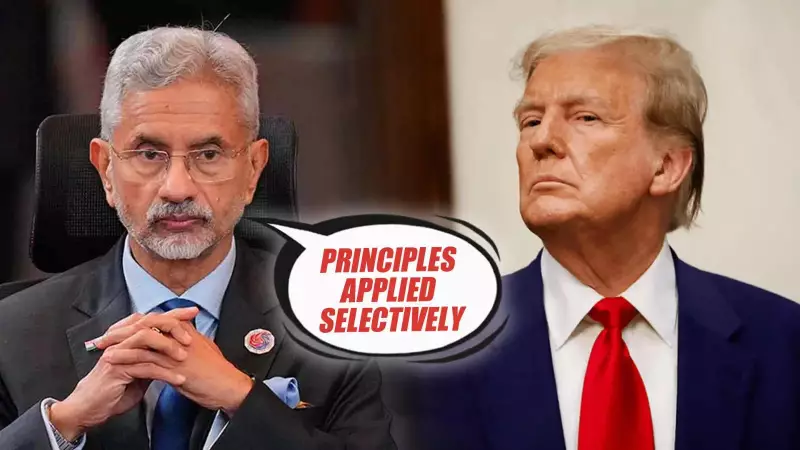
In a bold diplomatic statement that's making waves across international circles, External Affairs Minister Dr. S. Jaishankar has called out what he describes as significant "double standards" in Western trade practices. The seasoned diplomat didn't mince words while addressing the glaring gap between what developed nations preach and what they actually practice when it comes to global commerce.
The Core of Jaishankar's Argument
Dr. Jaishankar pointed to a fundamental inconsistency that has long troubled developing economies. "There's often a noticeable difference between what is preached and what is practiced," he stated, delivering what observers are calling a veiled but unmistakable critique of Western economic policies.
The minister's comments come at a crucial time when global trade dynamics are shifting and emerging economies like India are asserting their positions more confidently on the world stage.
Reading Between the Lines
While Jaishankar maintained diplomatic decorum, his message was clear and direct. He highlighted how developed nations frequently advocate for free trade principles in international forums but simultaneously implement protectionist measures that disadvantage developing countries.
This isn't the first time India's top diplomat has spoken about the need for more equitable global trade arrangements. However, the timing and tone of this particular statement suggest a more assertive Indian foreign policy approach.
Why This Matters for India and Global Trade
The implications of Jaishankar's statement are significant for several reasons:
- Level Playing Field: India is pushing for trade terms that don't disadvantage developing economies
- Strategic Positioning: The comments reflect India's growing confidence in international diplomacy
- Future Negotiations: This stance could shape upcoming trade discussions and agreements
- Global South Leadership: India positions itself as a voice for emerging economies
This diplomatic move comes as India continues to strengthen its economic partnerships across the globe while carefully navigating relationships with both Western powers and other emerging markets.
The Bigger Picture
Jaishankar's remarks aren't just about trade statistics and tariff barriers. They represent a broader philosophical stance about fairness in international relations and the need for major economic powers to practice what they preach.
As global supply chains reorganize and new economic alliances form, statements like these from key players like India could significantly influence how future trade frameworks are structured.
The diplomatic community will be watching closely to see how Western nations respond to this direct challenge to their trade practices and whether this marks the beginning of a more assertive phase in India's foreign policy approach.





